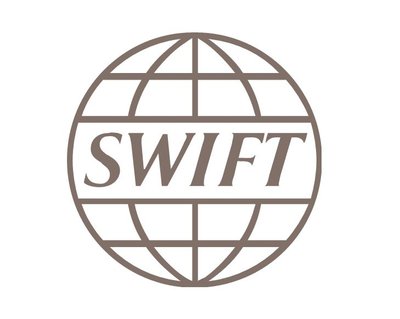 |
SINGAPORE, July 19, 2017 /PRNewswire/ -- The SWIFT Institute is publishing a new working paper on open banking, looking at the possible impact of the adoption of public application programming interfaces (APIs) on the financial services industry. The promise in application of open APIs is to create efficiencies and improvements for end-customers, as well as harnessing the capability and creativity that third parties can contribute to the realm of financial services. The paper, "The API Economy and Digital Transformation in Financial Services: The case of Open Banking" by Markos Zachariadis and Pinar Ozcan of Warwick Business School, University of Warwick, aims to provide an insightful resource for financial institutions, fintech startups, technology companies, and regulators alike.
According to the research, the EU's revised Payment Services Directive (PSD2) is anticipated to further open up the European payments market and encourage competition, particularly in the areas of payments. Likewise the UK Government, keen to create an initiative of data sharing and open data in banking, requested the creation of the Open Banking Working Group (OBWG) in 2015. The aim of the working group - a collective of banking, open data and FinTech professionals - is to develop a framework for adopting an open API standard across banking and explore how open banking will impact consumers, regulators and industry. The objective of this SWIFT Institute working paper is to help develop the thinking around some of the key challenges and opportunities surrounding the use of open APIs.
The research firstly explores relevant theories that are behind the creation of new organisational structures and business models in the digital age in order to help anticipate the impact of adopting open APIs. Secondly, the paper presents findings around the key challenges and opportunities that open APIs pose for the banking sector in the UK and the EU following the introduction of OBWG and PSD2 regulatory frameworks.
Peter Ware, Director of the SWIFT Institute says, "Open APIs are a great example of how banks today are actively involved in the innovation and evolution of financial services. The emergence of open APIs does mean, however, that the organisation and structure of the financial services model will be much more different than we have traditionally seen. This paper outlines how larger institutions can not only tackle inevitable challenges, but play an active role in the reduction of uncertainties in order to gain first-mover advantage."
The research project was originally suggested by NatWest to the SWIFT Institute. Marion King, Director of Payments at NatWest says, "Open banking and the development of API ecosystems are exciting initiatives that will enable customers to benefit from new products and services that will improve the management of their finances. We know from listening to our customers that they need simple, secure and relevant services. Only by embracing open banking and APIs in conjunction with the strategies explored in this research paper, will providers be able to offer the innovative products and services that customers expect."
Professor Markos Zachariadis says, "Through this report the SWIFT Institute provided us with the opportunity to do an initial study and gain some perspective on the digital transformation in the European and UK banking sectors as it relates to recent regulatory reforms." Professor Pinar Ozcan added, "We are excited to have launched such a research project at Warwick Business School and look forward to moving beyond the current research insights as we further explore the changing environment, working in collaboration with the banking industry and policy makers."
Disclaimer:
The views and opinions expressed in this paper are those of the authors. SWIFT and the SWIFT Institute have not made any editorial review of this paper, therefore the views and opinions do not necessarily reflect those of either SWIFT or the SWIFT Institute.
About SWIFT Institute
Launched in April 2012, the SWIFT Institute fosters independent research to extend the understanding of current practices and future needs across the financial industry. Managed by SWIFT, and working in close collaboration with academics from top international universities, the SWIFT Institute brings the financial industry and academia together to explore ideas and share knowledge on topics of global importance. The research covers four broad areas: Payments, Securities, Compliance / Regulation; and Technology / Cyber.
For more information, please follow us on LinkedIn: SWIFT Institute or Twitter:@SWIFTInstitute or visit http://www.swiftinstitute.org/
About SWIFT
SWIFT is a global member-owned cooperative and the world's leading provider of secure financial messaging services. We provide our community with a platform for messaging, standards for communicating and we offer products and services to facilitate access and integration; identification, analysis and financial crime compliance. Our messaging platform, products and services connect more than 11,000 banking and securities organisations, market infrastructures and corporate customers in more than 200 countries and territories, enabling them to communicate securely and exchange standardised financial messages in a reliable way. As their trusted provider, we facilitate global and local financial flows, support trade and commerce all around the world; we relentlessly pursue operational excellence and continually seek ways to lower costs, reduce risks and eliminate operational inefficiencies. Headquartered in Belgium, SWIFT's international governance and oversight reinforces the neutral, global character of its cooperative structure. SWIFT's global office network ensures an active presence in all the major financial centres.
For more information, visit www.swift.com or follow us on Twitter: @swiftcommunity and LinkedIn: SWIFT.
Xavier Duval
Tel: 852-2107-8978
Email: xavier.duval@swift.com
Logo - http://photos.prnasia.com/prnh/20160127/8521600559Logo